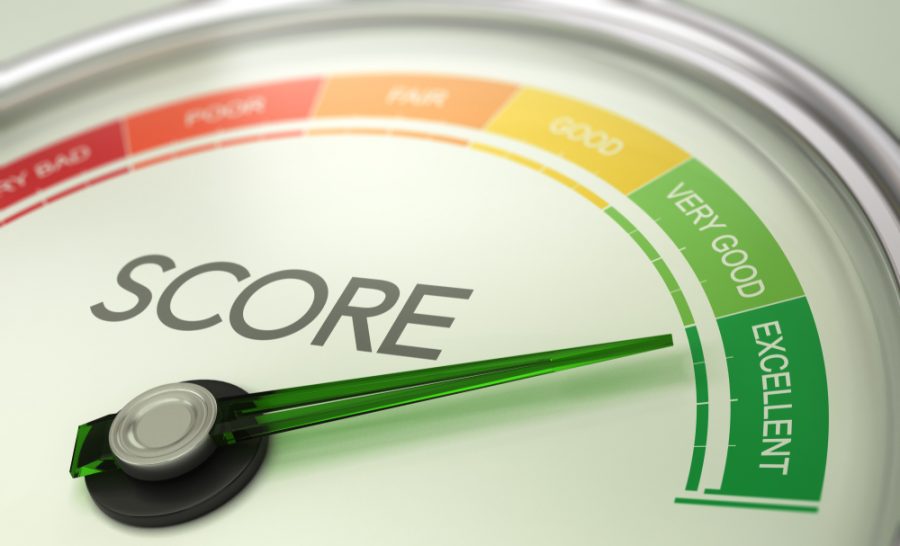Credit cards are excellent tools to build credit regardless of your current financial situation. It’s simple: find a credit card that suits your needs best, and use it responsibly! Remember to always pay your credit card bills on time, and never spend more than what you’re capable of repaying before the due date.
This is the most efficient and easiest way to build your credit score. By merely managing credit regularly, you can enhance your creditworthiness through a credit card. It can also be built by using credit cards frequently to make purchases and payments and only utilising a small portion of your card’s overall credit limit.
But let’s dive in a little deeper! Let’s see how you can achieve a decent credit score and be financially stable at the same time.
Using Credit Cards for Credit Scores
Your credit history is a record of your past behaviour as a borrower of money. Lenders and banks utilise this information to determine how likely you are to pay the money back. Simply put, it shows how trustworthy and reliable you are as a borrower.
Typically, credit card issuers report your account and activity to the national credit bureaus. These bureaus then use the information to create your credit reports and credit scores This is exactly why you’ll be able to enhance your credit score through a credit card.

However, to start building your credit, you will have to avail of a credit card of your own. Nevertheless, getting a credit card itself might prove to be a daunting task if you don’t already have a good credit score. Some viable options in such instances are:
Secured Credit Cards
These cards are a stepping stone to building or improving your credit. They function like any other standard credit card. However, a refundable security deposit would be required by the issuer when opening the account. Additionally, they may have a higher processing and membership fee, and won’t necessarily offer you any significant benefits. However, it can help you qualify for better cards in the future.
Student Credit Card
This can be an excellent option for you if you’re a student. Student credit cards commonly have low credit limits. Nevertheless, these cards have lower fees and offer better rewards on payments and purchases.
Credit Builder Credit Card
These cards aim to help borrowers build, improve, or repair their credit scores. The acceptance criteria for such cards are generally lower. Moreover, they have low limits and high-interest rates. If you can make timely payments and use a limited percentage of your card’s capacity, they are the perfect choice to enhance your creditworthiness. Simply google “credit builder card UK” to find one that suits your needs best!
If these options don’t work out for you, you could always ask a family member or friend to add you on their credit card as an authorised user. When they do, the credit card issuer can also report the account to the credit bureaus under your name. Moreover, you’ll get your own credit card to make payments and purchases in agreement with the primary cardholder.
However, you have to ensure that the primary user makes regular payments, or else it could negatively affect your credit score over time. Once you start building a decent credit score for yourself, it will be easier for you to avail different kinds of unsecured credit cards.
Best Ways to Build Credit With Credit Card
A credit card can be beneficial and risky at the same time. It can help you build positive credit scores, or can negatively impact your creditworthiness. To work your way to its good side, you need to focus and be dedicated to making timely payments and avoid maxing out your credit cards.
Pay Your Bills on Time
Payment History is the most pivotal factor in measuring one’s credit score. You will be required to at least make your minimum payment on time every month. If you miss out on your bill’s due date, the credit card company may charge you a certain ‘late fee’ based on the amount you already owe them. You may also stand to lose any promotional or introductory interest rates for your account.
One way to ensure that you never miss a payment is by setting up the autopay function for your account. This feature makes the required minimum payment for you so that you can pay the remaining balance later that month without incurring any penalty.
Once you cross 30 days after the due date, the details of the delayed payment are reported to the credit bureaus by the credit card company. This is registered as a negative mark that will affect your credit score. More importantly, it can stay on your credit report for up to 7 years.
Maintain a Low Utilisation Rate
The balance and the limit of your credit card plays a pivotal role in your credit score. The scoring models utilise these factors to calculate your credit utilisation ratio. Ideally, low utilisation, which is achieved through a low balance, will improve your credit score.
Limiting your credit card usage, particularly when a low credit limit is only available, will help you keep your utilisation rate to a bare minimum. Suppose the card is often used to make large purchases. In that case, you can lower your reported balance by merely paying the excess amount before the end of your statement period, which is typically about 21 to 25 days prior to your bill’s due date.
Nevertheless, a perfect utilisation rate does not exist. However, it would be best if you aimed to keep it below 10% to reflect better on your credit score.
In Conclusion, Build and Monitor Your Credit
Regardless of using a credit card for personal reasons, or for building your credit score, you can monitor your progress by tracking your score online and analysing your credit reports regularly.
Several applications and online credit consultants offer you invaluable insights into your current credit status, how your score changes over time, and gain customised suggestions on how to improve your score over time.
More Stuff For Your Inspiration:
- No Related Posts
Related posts
Categories
- Around The World (369)
- Business (57)
- Education (9)
- Home Improvement (23)
- Humor (191)
- Inspiration (512)
- Lifestyle (21)
- Motivation (2)
- News (31)
- Photo of the Day (257)
- Photography (105)
- Technology (61)
- Travel (8)



